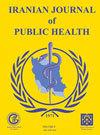定制化沟通训练对非暴力沟通、非语言沟通和自我接纳的影响:来自韩国护生的证据
IF 1.4
4区 医学
Q3 Medicine
引用次数: 1
摘要
背景:我们旨在调查韩国护生非暴力非语言沟通和自我接纳训练计划的效果。 方法:我们在韩国釜山市三所大学的护理系招收学生。将学生随机分为实验组(n = 38)和对照组(n = 36);随后,他们分别在培训前后完成问卷调查。数据于2023年3月收集。实验组参加了一个项目,包括390分钟的讲座、练习、角色扮演、讨论和反思,每天8小时,共8次。培训旨在让学生理解和实践非暴力和非语言沟通。数据分析采用描述性统计、卡方检验和配对t检验。 结果:实验组与对照组比较,干预后非暴力沟通得分有显著改善(t = -2.442, P= 0.020);然而,干预后非言语交际和自我接纳得分在组间无显著差异。 结论:需要定制沟通培训方案来提高医务人员(包括护生)的沟通能力。此外,制定沟通能力的标准至关重要。具体而言,从长远的角度来看,需要持续的教育策略来有效地提高韩国护理学生的沟通能力。有可能制定培训计划,可以系统地提高护理学生的沟通能力。本文章由计算机程序翻译,如有差异,请以英文原文为准。
Effects of Customized Communication Training on Nonviolent Communication, Nonverbal Communication, and Self-Acceptance: Evidence from Korean Nursing Students
Background: We aimed to investigate the effects of a nonviolent and nonverbal communication and self-acceptance training program among Korean nursing students.
Methods: We enrolled students in nursing departments at three universities in Busan Metropolitan City, South Korea. The students were randomly allocated to the experimental (n = 38) and control groups (n = 36); subsequently, they completed questionnaires before and after training. Data were collected on March 2023. The experimental group was enrolled in a program comprising 390 minutes of lecture, practice, role play, discussion, and reflection in 8-h daily sessions, with a total of eight sessions. The training sought to allow students to understand and practice nonviolent and nonverbal communication. Data were analyzed using descriptive statistics, chi-square tests, and a paired t-test.
Results: Compared with the control group, the experimental group showed a significant post-intervention improvement in the nonviolent communication scores (t = -2.442, P= 0.020); however, there were no significant between-group differences in the post-intervention nonverbal communication or self-acceptance scores.
Conclusion: Customized communication training programs are required to address communication competencies among medical personnel, including nursing students. Moreover, it is crucial to set standards for communication competency. Specifically, from a long-term perspective, a continuous educational strategy is required to effectively improve the communication capabilities of nursing students in Korea. It is possible to develop training programs that can systematically improve communication competency among nursing students.
求助全文
通过发布文献求助,成功后即可免费获取论文全文。
去求助
来源期刊

Iranian Journal of Public Health
医学-公共卫生、环境卫生与职业卫生
CiteScore
2.20
自引率
7.10%
发文量
0
审稿时长
2 months
期刊介绍:
Iranian Journal of Public Health has been continuously published since 1971, as the only Journal in all health domains, with wide distribution (including WHO in Geneva and Cairo) in two languages (English and Persian). From 2001 issue, the Journal is published only in English language. During the last 41 years more than 2000 scientific research papers, results of health activities, surveys and services, have been published in this Journal. To meet the increasing demand of respected researchers, as of January 2012, the Journal is published monthly. I wish this will assist to promote the level of global knowledge. The main topics that the Journal would welcome are: Bioethics, Disaster and Health, Entomology, Epidemiology, Health and Environment, Health Economics, Health Services, Immunology, Medical Genetics, Mental Health, Microbiology, Nutrition and Food Safety, Occupational Health, Oral Health. We would be very delighted to receive your Original papers, Review Articles, Short communications, Case reports and Scientific Letters to the Editor on the above mentioned research areas.
 求助内容:
求助内容: 应助结果提醒方式:
应助结果提醒方式:


